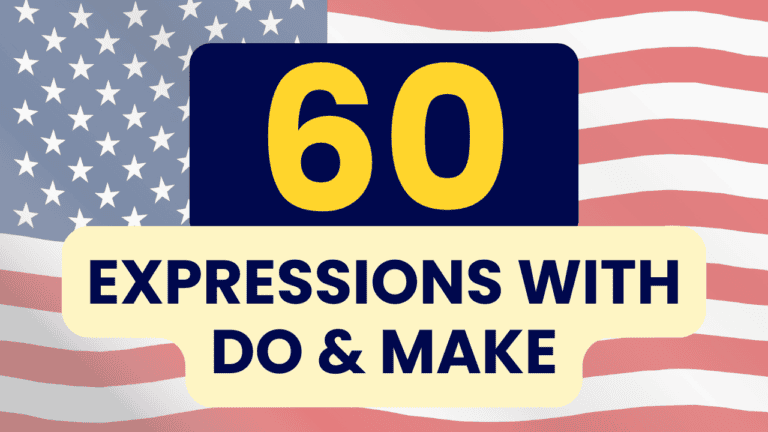This is a free sample lesson from the e-book
1000 English Collocations in 10 Minutes a Day
A number of words in English are used metaphorically – with a meaning that is not exactly the same as their literal meaning. Usually they apply a quality of one word to another word.
For example, when we say that something is lightning fast, we are using the quality of lightning (which is almost instantaneous) to describe something that is extremely fast.
Another example is the root of the problem – the literal meaning of the word “root” is the part of a plant or tree that is under the soil. The roots are what support and sustain the entire tree. Therefore, “the root of the problem” is the deepest, most basic or fundamental reason for the problem.
Many metaphors are related to elements in the natural world, such as light and dark, water, fire, and plants – in this lesson, you’ll learn 5 collocations in each category.
LIGHT AND DARK
- If someone’s face or eyes light up, it means that they suddenly get very happy or excited. You can also say someone’s eyes are shining with delight.
- The expression lighten the mood means to make a depressing atmosphere/situation more relaxed and happy.
- On the other hand, if someone’s face/eyes/expression darkens, it means that they suddenly appear sad or angry.
- Dark days or dark times refer to periods of time that are bad or unpleasant, full of problems
WATER
- You can say that ideas are flowing or conversation is flowing to describe when it is proceeding easily and naturally.
- Water metaphors are often used to describe the movement of groups of people – you can say that people poured/streamed into the stadium (to describe continuous movement of large groups of people) or that people trickled into the church (when only a few people come, occasionally).
- The expressions waves of disappointment or waves of sadness refer to strong feelings.
FIRE
- A heated discussion or heated debate is one that is very intense, often with negative emotions like anger.
- If someone has a fiery temper, it means that when they get angry, they get VERY angry, and could possibly explode. There’s also the expression tempers flared to describe a situation when people began to get angry.
- The verbs kindle and spark describe the act of starting fires. “Kindle” is usually used for starting positive things – something can kindle interest/enthusiasm/hope – and “spark” is usually used for starting negative things – something can spark outrage/controversy.
PLANTS
- It’s difficult for a plant to grow in soil that has a lot of rocks. So if something gets off to a rocky start, it means that it encountered many problems in the beginning.
- Thorns are the small, sharp growths that appear on some plants (such as roses). The expression a thorny issue describes a matter that is difficult, complicated, and possibly dangerous.
- The word “blossom” is used to describe when a flower appears and opens, revealing all its beauty. So if a romance/friendship is blossoming, then it is developing in a beautiful way.
- If your efforts begin to produce the desired results, we can say your efforts are bearing fruit.
- A seed represents something very small that can grow into something big. So if some event plants seeds of hope / seeds of jealousy, it means it produces a small feeling that can grow into a stronger emotion over time.
English Collocations: Metaphors
Question 1 |
A | trickled |
B | dripped |
C | poured |
Question 2 |
A | flowing |
B | sharp |
C | thorny |
Question 3 |
A | roll |
B | flood |
C | wave |
Question 4 |
A | streaming |
B | lightning |
C | thunder |
Question 5 |
A | blossoming |
B | rooting |
C | shining |
Question 6 |
A | black |
B | shady |
C | dark |
Question 7 |
A | growing |
B | bearing |
C | producing |
Question 8 |
A | controversy |
B | contention |
C | argument |
Question 9 |
A | turned |
B | lit |
C | shone |
Question 10 |
A | kindled |
B | ignited |
C | started |

This is a free sample lesson from the e-book
1000 English Collocations in 10 Minutes a Day









